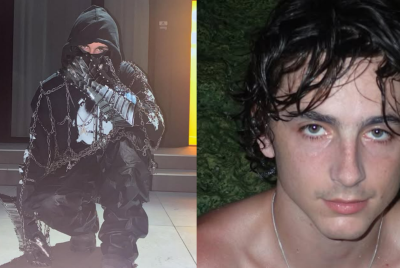NewJeans Court Case Explained: Why Is The K-Pop Group Being Asked To Pay £537K – And More
When it comes to the penalties, each violation could cost the group over £2.6 million (around $3.6 million) collectively

The ongoing legal conflict between K-pop girl group NewJeans and their former agency, ADOR, has grown more intense as the group is under more scrutiny after a recent ruling.
According to reports, a Seoul court has ruled that each of the five members of NewJeans must pay a fine of one billion Korean won—approximately £537,000—for every unauthorised entertainment activity they perform without ADOR's prior consent.
Notably, this is not the first time a legal warning has stepped on the group's door, as their legal troubles with their former agency have been going on for quite a while. Here's a breakdown of what's happened, what it means for the group, and what might come next.
Timeline of The Legal Dispute
Although the rumours regarding an ongoing tussle between the group and the agency had been making the rounds since August 2024, after Min Hee-Jin, former CEO of ADOR and NewJean's mentor.
However, the conflict between both parties escalated in November 2024, when the five members – Minji, Danielle, Haerin, Hanni and Hyein – announced they were terminating their contracts with ADOR, a label under Hybe Corporation. This is the same corporation that manages one of the biggest K-pop boy groups, BTS.

Newjeans accused the agency of breaching their exclusive contract and began operating independently under a new name, NJZ. To which ADOR responded swiftly by filing for an injunction – a court order in which a person or a group is restrained from doing a specific action – in January 2025, aiming to block the group from carrying out solo or group activities outside its authority.
During a hearing in March, the Seoul Central District Court sided with ADOR, issuing a preliminary injunction prohibiting the group from taking on new endorsements or entertainment gigs without ADOR's approval. The court also affirmed ADOR's legal standing as NewJeans' exclusive agency until the dispute was resolved.
The Court's Latest Ruling
On May 30, 2025, the same court again sided with ADOR by approving the agency's request for 'indirect compulsory execution' — a legal tool designed to enforce compliance through financial penalties. Essentially, it means the group must pay 1 billion won, which equals £537,192 ($726,300) per member for each instance of non-compliance.
In its ruling, the court stated: 'Since NewJeans violated the obligations set by the injunction by performing under a new group name and even releasing new songs before and after the injunction ruling, it is necessary to impose indirect compulsory enforcement to ensure compliance with the order.'
According to Korean media, this decision follows NJZ's appearance at ComplexCon Hong Kong in March and their performance of a new song, Pit Stop, both of which allegedly occurred without ADOR's authorisation.
Is This Ruling Final?
Not quite. The court was clear that this ruling is not retroactive, meaning the group won't be penalised for activities that took place before the official notice was delivered. Moreover, NewJeans are appealing the original injunction, and this latest penalty will be nullified if they win that appeal.
In a statement following the ruling, the group said, 'The indirect enforcement decision announced today was made in response to an application filed by ADOR on April 4. It is not directly related to the appeal of the original injunction, which is currently undergoing a separate legal review.'
The group added that the ruling is 'only temporary pending the outcome of the appeal.'

Meanwhile, the next major development is expected on June 5, when the second hearing in the main lawsuit over the validity of the contract of the K-pop group will take place.
When it comes to the penalties, each violation could cost the group over £2.6 million (around $3.6 million) collectively. More importantly, the outcome of the ongoing trial could determine not only the group's legal standing but also the course of their careers.
© Copyright IBTimes 2025. All rights reserved.





















